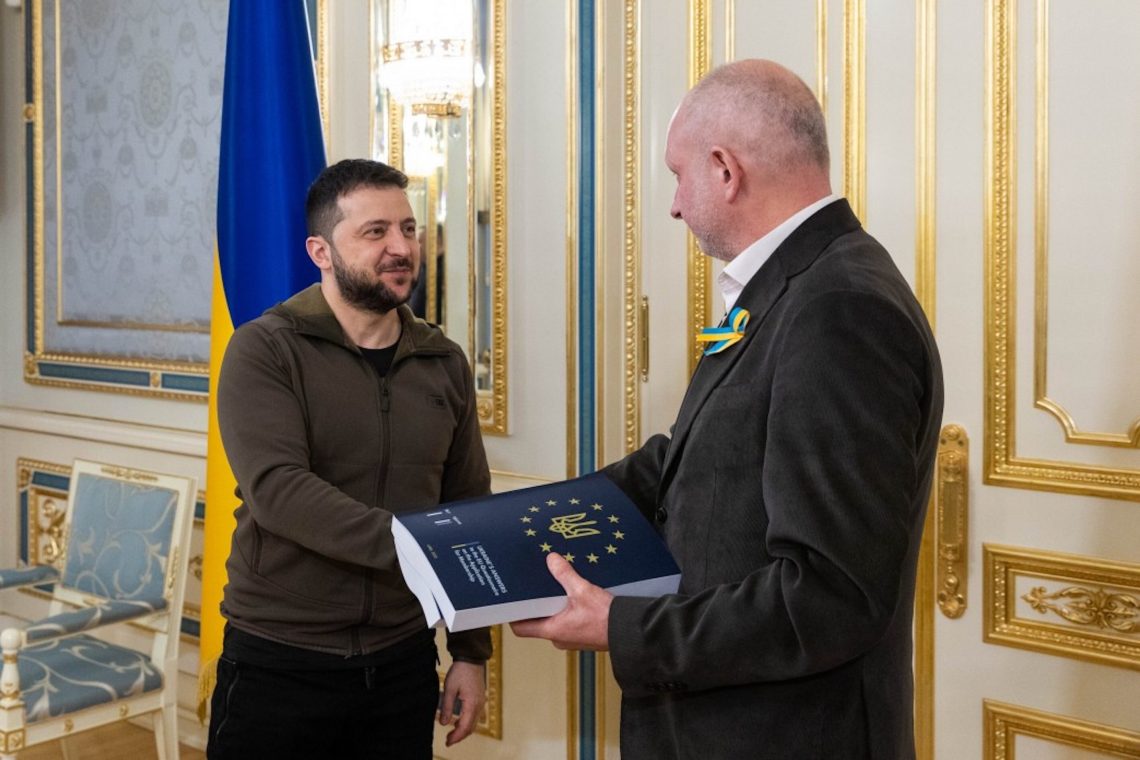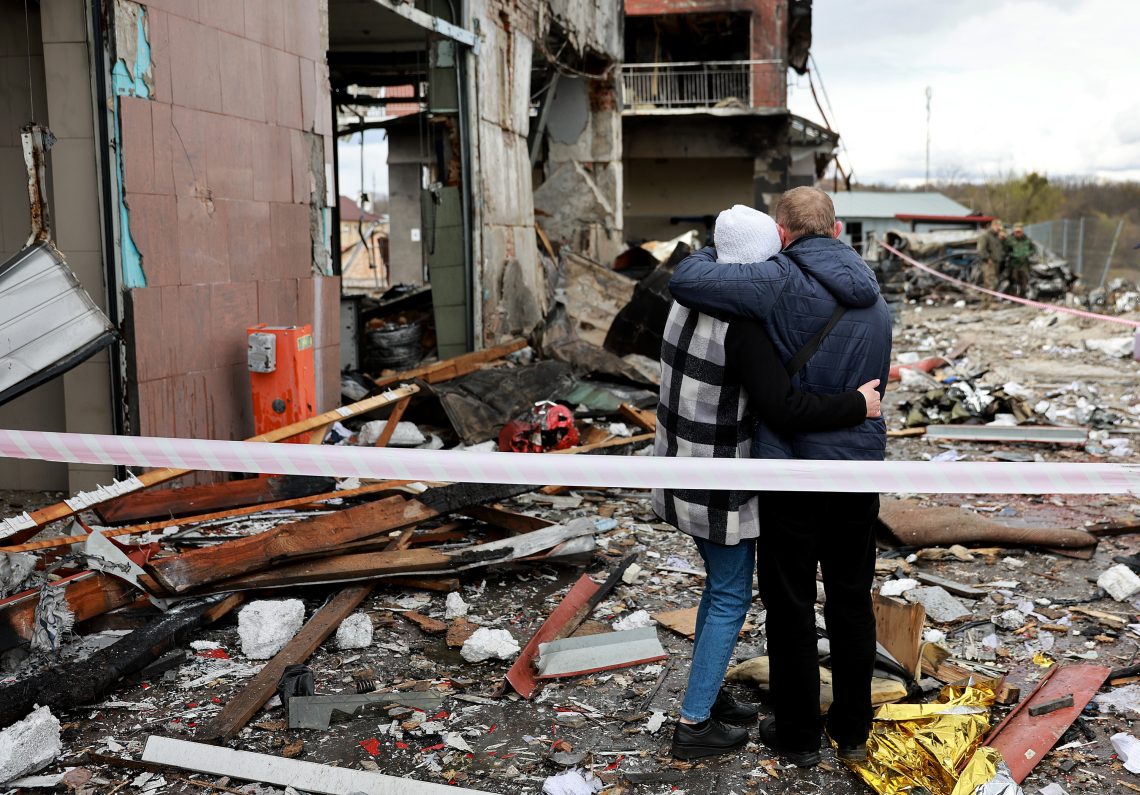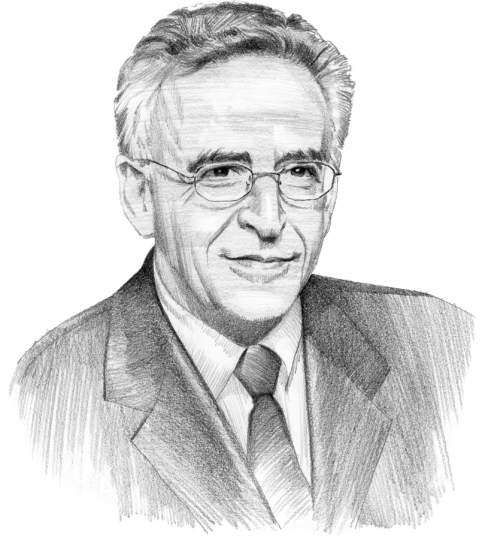The EU’s response to the war in Ukraine
Russia’s invasion of Ukraine prompted a strong and unified response from the European Union, but economic strains and energy dependence on Russia could lead to renewed divisions.

@ Getty Images
In a nutshell
- The war in Ukraine has led EU countries to bolster defense spending
- Reducing dependence on Russian energy supplies remains difficult
- Long-term sacrifices will be needed to stay united, uphold values
The European Union responded resolutely to Russia’s attack on Ukraine. The EU quickly adopted robust measures to degrade Russia’s economy and support Ukraine, despite its members’ diverse threat perceptions, interests and relations with Moscow. It launched a procedure to examine the applications of Ukraine, Georgia and Moldova for EU membership in record time. But EU unity will be tested as the war’s economic effects intensify. With inflation on the rise and food and fuel supplies under pressure, there is growing awareness of the risks facing Europe, while Ukraine continues, valiantly, to resist Russia’s ferocious invasion.
The belated birth of a geopolitical Europe
Russia’s invasion of Ukraine brought an uncommon degree of unity to the often-fractious EU, as its 27 countries provided Kyiv with military support, strengthened their own defenses, imposed sanctions on Russia, welcomed several million Ukrainian refugees and took the first step toward possible EU membership for Ukraine. “Putin’s war immediately united [the EU and NATO] in complete and dynamic solidarity,” according to Sigmar Gabriel, a former German foreign minister. At a summit with Russia’s Chinese ally in early April, the EU pushed back firmly against the Chinese president’s efforts to drive a wedge between Brussels and Washington.
Taboos fell by the wayside, as they had during the Covid-19 crisis, when financial transfers among EU members and new public health responsibilities for Brussels were approved. European Commission President Ursula von der Leyen called the EU’s restrictions on Russia “the largest sanctions package in our Union’s history.” Hitherto reluctant countries, including Germany and Italy, approved sweeping sanctions, including blocking much of Russia’s currency reserves. Several packages of sanctions of growing intensity, coordinated with the United States and the United Kingdom, led to a precipitate drop in the ruble’s exchange rate. But the currency partly recovered with soaring energy and commodity prices, since an oil and gas embargo on Russia is not yet part of EU sanctions.
The 2022 Ukraine war saw “the belated birth of a geopolitical EU,” according to Josep Borrell Fontelles, the bloc’s foreign policy chief, bringing a “leap forward on EU security and defense.” The newfound willingness of European states, especially Germany, to provide Ukraine with lethal weapons including antiaircraft, anti-tank and anti-armor systems sustains this narrative. The German government authorized the dispatch to Ukraine, from the Czech Republic, of upgraded Soviet-era infantry fighting vehicles, originally from the former East Germany. The EU activated its 500 million euro “peace facility,” quickly raised to 1 billion euros, to purchase arms and other supplies for the Ukrainian military. Berlin announced an additional 100 billion euros to modernize Germany’s own armed forces, raising its military spending to the NATO target of 2 percent of gross domestic product (GDP).
The Ukraine war disposed of Berlin’s implausible claim that gas imports from Russia are a purely commercial matter.
The EU published new security guidelines in March, the “Strategic Compass,” which calls for the establishment of a 5,000-strong Rapid Deployment Capacity. The “compass” sets aside the EU’s previous soft power fixation and calls instead for an array of capabilities from cybersecurity to battle-ready troops. This robust stance foresees stronger EU-NATO cooperation, with Denmark possibly relinquishing its opt-out from EU defense policies and Finland and Sweden moving closer to joining the NATO alliance.
The Ukraine war disposed of Berlin’s implausible claim that gas imports from Russia are a purely commercial matter. The German government’s decision to halt the certification of the recently completed North Stream 2 pipeline and to set early deadlines for ending dependence on Russian gas, oil and coal, is a seismic shift in the country’s energy policy.
The EU signaled its intention to cut back on energy imports from Russia. To find other suppliers, it is exploring a joint procurement scheme, inspired by its vaccine experience, and the partial replacement of Russian pipeline gas with liquified natural gas (LNG) bought on world markets. It is pushing for increased energy efficiency and a swifter transition to renewable energy. The EU has set the goal of filling gas reservoirs to 80 percent of their capacity by November and 90 percent in future years. The U.S. agreed to support EU efforts to acquire LNG at a summit with European leaders in March.
The agreement of EU countries to offer temporary protection to Ukrainians fleeing the war swept aside previous hesitations. The easing of Covid-19 entry checks facilitates the reception of refugees. Three-quarters of the four million Ukrainians who had fled the country by early April found shelter in the EU. The public has been unstinting in its hospitality, notably in Poland and other European countries previously wary of immigration.
In early March, within days of receiving applications for membership from the governments of Ukraine, Georgia and Moldova, the EU’s Council of Ministers asked the European Commission to prepare formal opinions on their readiness to start the process. This was remarkably rapid compared with the lengthy deliberations usually required before the Council makes such a move. Poland, for example, presented its application for EU membership in April 1994 and a year went by before the Council asked for a formal opinion from the Commission. The Commission has promised to deliver its opinion, possibly recommending candidate status, by June.
Risks and uncertainties
The Ukraine war, however, is an exogenous shock, which, like the pandemic, accentuates divergences among EU countries. Inflation already cast Europe’s economic recovery into doubt before the Ukraine war. Support for Moscow by the OPEC+ cartel, which is holding down oil production to maintain prices, is making the push to diversify energy supplies away from Russia more painful economically. Disruption of trade and global value chains, as well as uncertainty over supplies of commodities, have not helped. Several vulnerable European countries are seeking a fresh debt-based fund, like NextGenerationEU, to alleviate the shock. But “frugal” northern countries are so far refusing to go along with such suggestions.
The yellow vest protests in France showed how even small increases in energy prices can spark revolt. Governments across Europe are scrambling to protect their populations from surging prices. But the sense of urgency varies according to each country’s energy mix and the imminence of elections.
Annual imports of 160 billion cubic meters of gas from Russia cannot easily be replaced.
Russia’s attack on Ukraine accelerated decisions on reducing, or even eliminating, dependence on imports of Russian gas, oil and coal. Daily payments of around 800 million euros for these imports are financing Russia’s war effort and dwarf the EU’s contribution to Ukraine’s defense. But annual imports of 160 billion cubic meters of gas from Russia cannot easily be replaced. LNG supplies are inadequate, and Germany has yet to complete its first LNG regasification terminal. Interconnectors for transporting gas between European countries are incomplete, and, above all, LNG is far more expensive than pipeline gas.
U.S. President Joe Biden has promised to help Europe obtain increased LNG supplies. But energy companies will sell more LNG to Europe only if the price is high enough. If European LNG prices rise sufficiently to attract new supplies, there will be knock-on effects on inflation and competitiveness in Europe.
President Putin’s onslaught has put debates over “strategic autonomy” on the back burner. But Europe’s newfound consensus on security and defense will be tested in the months ahead. Germany will find it hard to spend its additional 100 billion-euro military budget in three years, as planned. Paris worries that Germany’s recent decision to purchase 35 U.S. Lockheed Martin F-35 fighter jets could set back plans for an advanced Franco-German fighter.

Civil society in the EU has taken the lead in providing hospitality to Ukrainian refugees, backed up by the public authorities. The EU is mobilizing “cohesion funds” to support national, regional and local authorities in caring for people admitted under the EU’s temporary protection directive. But this form of EU assistance is short-term only. Refugees will continue to arrive, placing additional demands on health, education, transport and other public services.
So far, the distribution of migrants among EU countries, while uneven, is proving less controversial than during the 2015 Syrian refugee crisis. But popular attitudes can change quickly, fanned by inflation, elections and likely shortages. EU unity will be tested as numbers grow.
The Commission has promised to give its formal opinion by June on applications for membership by Ukraine, Georgia and Moldova. Such speed is unprecedented but gives little practical comfort to the three countries. The granting of candidate status is uncertain, with Ukraine at war, and anyway would fall short of the fast-track to EU membership that Ukrainian President Volodymyr Zelenskiy is seeking. Some EU governments may prefer to give a boost to the EU’s association agreements with these countries.
Scenarios
The EU has faced a series of shocks since the 2008 global financial crisis. Overall, its response has strengthened European integration. The Ukraine war takes the challenge to a new level. Thus far, the EU has responded well. But it has also brought out new lines of political division, depending on countries’ energy mix and degree of dependence on Russia. With Germany renouncing nuclear energy and Russian hydrocarbons on the way out, the EU will need to make energy security as well as climate policy a priority.
EU enlargement and neighborhood policy are being tested to the limits. The reelected Hungarian prime minister’s treatment of Ukraine as an adversary has cast into doubt the future of the Visegrad group of hitherto like-minded countries in Central Europe.
Above all, though, Russia’s invasion has imposed intolerable suffering on the Ukrainian people. The only acceptable response is continued unity, openhandedness, willingness to accept sacrifices and defense of fundamental values.








